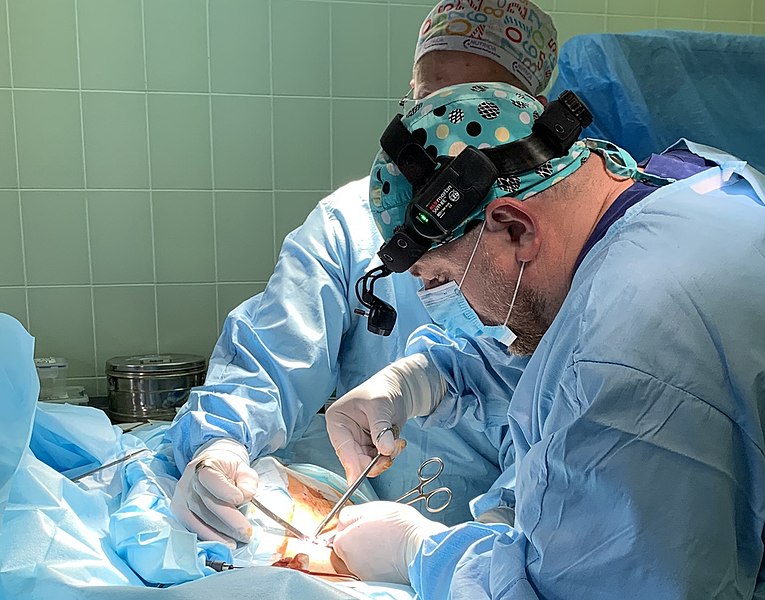Dr. Glenn L. Keiper Jr, MD, has extensive knowledge in the field of neurosurgery. Not only has he completed rigorous training, but he has years of practical experience. Dr. Glenn L. Keiper Jr, MD, built his practice to continue treating patients with the education he has received. To fully understand what it takes to become a neurosurgeon, there are many factors to consider.
What Does A Neurosurgeon Do?
A neurosurgeon is a medical physician that can diagnose and treat a variety of health conditions. Although many people assume “neuro” exclusively refers to the brain, it includes several parts of the body.
Dr. Glenn L. Keiper Jr, MD, studied the nervous system extensively to perform specific surgeries. Both the brain and the spinal cord create what is known as the central nervous system. Without a functioning nervous system, every part of the body would be affected in some way.
The nervous system communicates various functions throughout the body, including organs such as the heart and lungs. Although humans do not actively tell themselves to breathe in and out every moment of the day, the central nervous system does. If a central nervous system is impaired, this can also impact memory and sensory perception.
Neurosurgeons can perform surgeries that include any of the following, clot removal, aneurysm repair, shunt insertion, coil embolization, vagus nerve stimulation, spinal fusion, carpal tunnel release.
By using state-of-the-art imaging technology, the source of each problem can be identified. Once the condition is verified, a certified surgeon such as Dr. Glenn L. Keiper Jr MD may employ specific surgery options.
The 3 Critical Steps To Becoming A Neurosurgeon
Becoming a neurosurgeon takes more than just hard work. This type of career is best suited for those who are curious about medical science and the advancement of technology and those who are competitive and driven. Neurosurgery attracts bright candidates from medical schools around the country.
Medical school
A career as a neurosurgeon takes many years of schooling. Completing medical school is at the beginning part of this process because there are still years of education to come. An accredited medical school is a 4-year program that includes research. Most students who want to become neurosurgeons know their path while in the early stages of medical school. Extensive research in the field will prove helpful, especially when completing sub-internships. Subinternships in neurosurgery can be done in a variety of institutions to prepare for residency.
Residency
Residency is not the same as an internship. Residency incorporates an internship as well as junior, senior, and chief residency. Typically this program lasts several years in an accredited institution. Each program accepts only a handful of residents each year. The first phase of residency includes rotations in neurosurgery and neurology, neurosciences, and other surgical positions. A junior resident learns the basic operating procedures while a chief resident is in charge of educating the juniors. This structure of residency programs can vary greatly depending on location and facility. A typical residency program can require a significant amount of time in and out of hospitals.
Fellowship
After residency, a fellowship is advised for some professions. This continues to further a student’s understanding of the specialization. Pediatric neurosurgery options allow doctors to develop skills such as cerebrovascular surgery or minimally invasive techniques. Fellowships typically take two years to complete.
Academic vs. Private Practice
After completing the necessary schooling, neurosurgeons can work in multiple different settings. A clinical neurosurgeon can choose an academic route or a private practice. The academic route typically involves teaching at medical centers, while private practice allows for a hands-on career.
The academic route can help medical students, residents, fellows, and patients. In addition to spending time in the center, neurosurgeons are usually required to conduct research. This can be done in a laboratory or a clinical setting. Many neurosurgeons are well-equipped to work in academia after spending so much time in school. There are multiple tasks to stay busy with while still working in the field.
Private practice allows a neurosurgeon to work with a small group of peers. Usually, private practices are permitted to operate at a hospital while seeing patients. Private practice allows neurosurgeons to work hard in the specialty they value while still receiving off-duty time. Private practice surgeons can make $208,000 per year.
Patient Connection
Formal education can teach classes the most advanced medical techniques available in neurosurgery. After several years of highly competitive schooling, this knowledge may seem like it is enough to succeed.
In addition to the hard skills necessary to perform operations, a successful neurosurgeon must relate with the patient in a way that shows dignity and understanding. Many students start medical school because they are interested in helping people become healthy. When technical skills are prioritized and refined for several additional years, the connection to patients may have waned.
To succeed as one of the top neurosurgeons, it is important to remember why the profession was intriguing. Those who want to make the most difference in an individual’s life can do well with multiple aspects of the job.
Wrap Up
A neurosurgeon has the unique ability to keep learning. Whether working in an academic setting, private practice, or a military zone, surgeons are faced with complex and fascinating challenges. The opportunity for research and technological development is a way to explore humanity far into the future.

